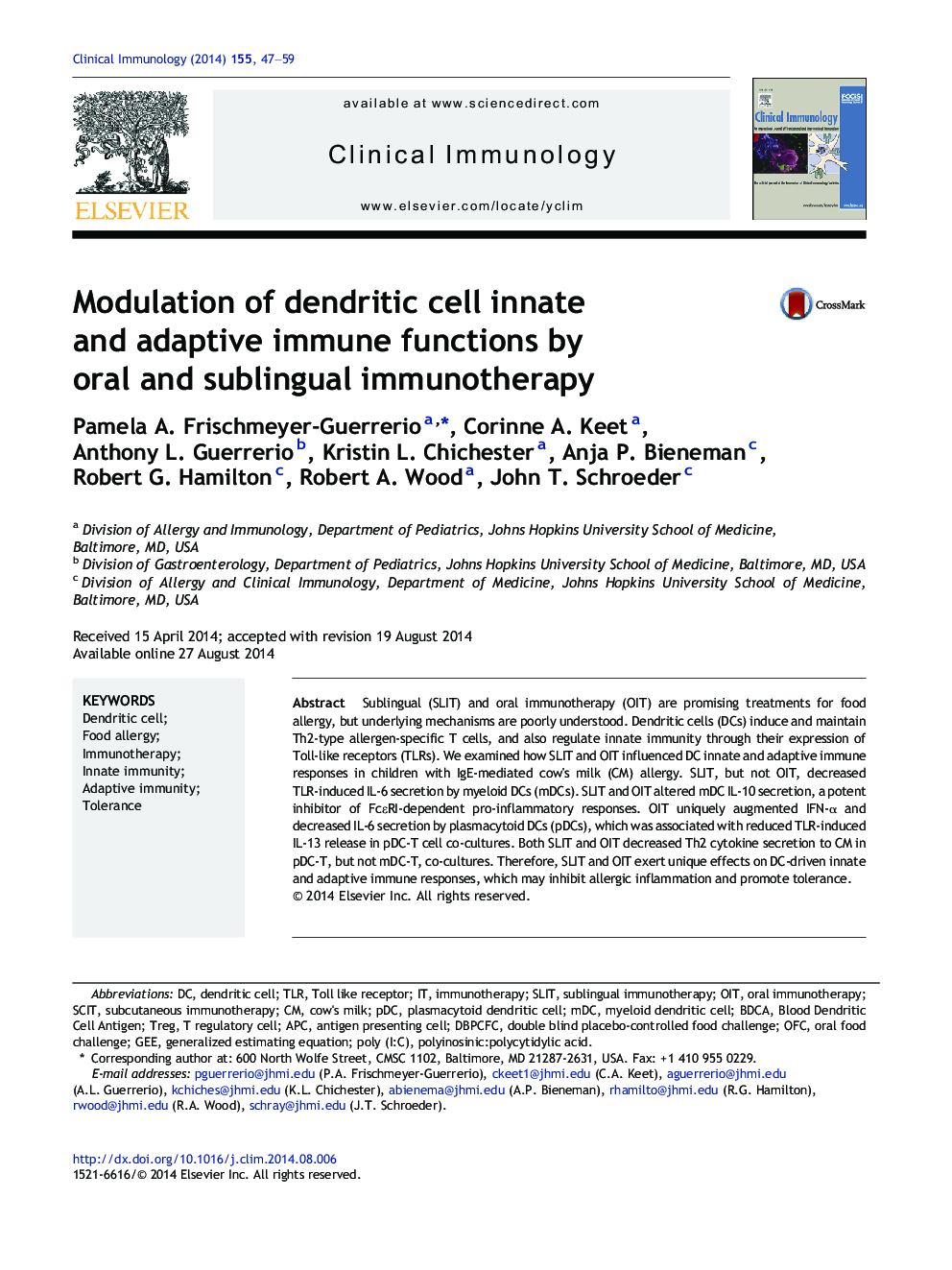| Article ID | Journal | Published Year | Pages | File Type |
|---|---|---|---|---|
| 6087358 | Clinical Immunology | 2014 | 13 Pages |
â¢SLIT and OIT for CM allergy alter DC innate and adaptive immune functions.â¢SLIT exerts a greater effect on mDC function and OIT on pDC responses.â¢Changes in TLR-driven DC cytokine responses during OIT/SLIT may promote tolerance.
Sublingual (SLIT) and oral immunotherapy (OIT) are promising treatments for food allergy, but underlying mechanisms are poorly understood. Dendritic cells (DCs) induce and maintain Th2-type allergen-specific T cells, and also regulate innate immunity through their expression of Toll-like receptors (TLRs). We examined how SLIT and OIT influenced DC innate and adaptive immune responses in children with IgE-mediated cow's milk (CM) allergy. SLIT, but not OIT, decreased TLR-induced IL-6 secretion by myeloid DCs (mDCs). SLIT and OIT altered mDC IL-10 secretion, a potent inhibitor of FcεRI-dependent pro-inflammatory responses. OIT uniquely augmented IFN-α and decreased IL-6 secretion by plasmacytoid DCs (pDCs), which was associated with reduced TLR-induced IL-13 release in pDC-T cell co-cultures. Both SLIT and OIT decreased Th2 cytokine secretion to CM in pDC-T, but not mDC-T, co-cultures. Therefore, SLIT and OIT exert unique effects on DC-driven innate and adaptive immune responses, which may inhibit allergic inflammation and promote tolerance.
